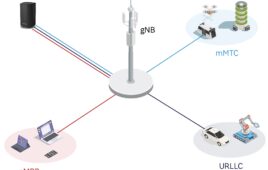The next generation of wireless technology – more commonly known as 5G – will propel mobile into the realm of General Purpose Technologies, putting it on par with essentials like electricity and automobiles, a new report commissioned by Qualcomm predicted.
Conducted jointly by IHS Markit, PSB, and economist David Teece of the University of California, Berkeley, the study also found 5G will have a huge impact on the global economy, enabling up to $12.3 billion in opportunity for goods and services by 2035.
According to the report, 5G will set the stage for mobile to become an essential technology, moving past a consumer and enterprise use cases to address industrial and public sector economic needs. Rather than just connecting people in their personal lives, 5G will also address Massive IoT-type applications (like asset tracking, smart agriculture, cities, and homes, connected shopping, etc.), as well as mission-critical use cases like connected cars and infrastructure, industrial automation, smart grid, and telehealth, the study indicated.
As a result of this shift to 5G as the underpinning technology of society, the report forecast 5G will open up a new era of innovation and spur “widespread benefits for society and the economy overall.”

Credit: IHS Markit from Qualcomm’s 5G Economy report
By 2035, after 10 years of broad commercial availability, the report predicted the 5G value chain (including network operators, core technology, component, and infrastructure providers, device manufacturers, and content and app developers) could generate up to $3.5 trillion in revenue and support as many as 22 million jobs. The report indicated the United States and China are expected to dominate the 5G value chain, accounting for an average of around 28 percent and 23 percent of R&D and Capex, respectively, between 2020 and 2035, and reaping $719 billion and $948 billion in gross output, respectively, in 2035. The 5G value chain is expected to support a whopping 9.5 million jobs in China by 2035, as well as 3.4 million in the United States, 2.1 million in Japan, and 1.2 million in Germany.
On a global scale, the study also forecast the economic benefits of 5G could amount to $12.3 trillion in goods and services across industries like communication, agriculture, manufacturing, education, entertainment, health, transportation, public service, and utilities. From 2020 to 2035, IHS Markit forecasted 5G will account for around 0.2 percent of an average annual real GDP growth rate of 2.9 percent.
“I’ve spent many years studying the impact of general purposes technologies, and it’s clear that 5G will propel mobile into that category, assuring the technology’s long-term impact on society and continued growth for decades,” Teece commented.
The Qualcomm-commissioned report comes on the heels of a separate report from CTIA and Accenture that found 5G wireless networks could create as many as three million jobs and boost the U.S. GDP by nearly $500 billion over the next seven years.




